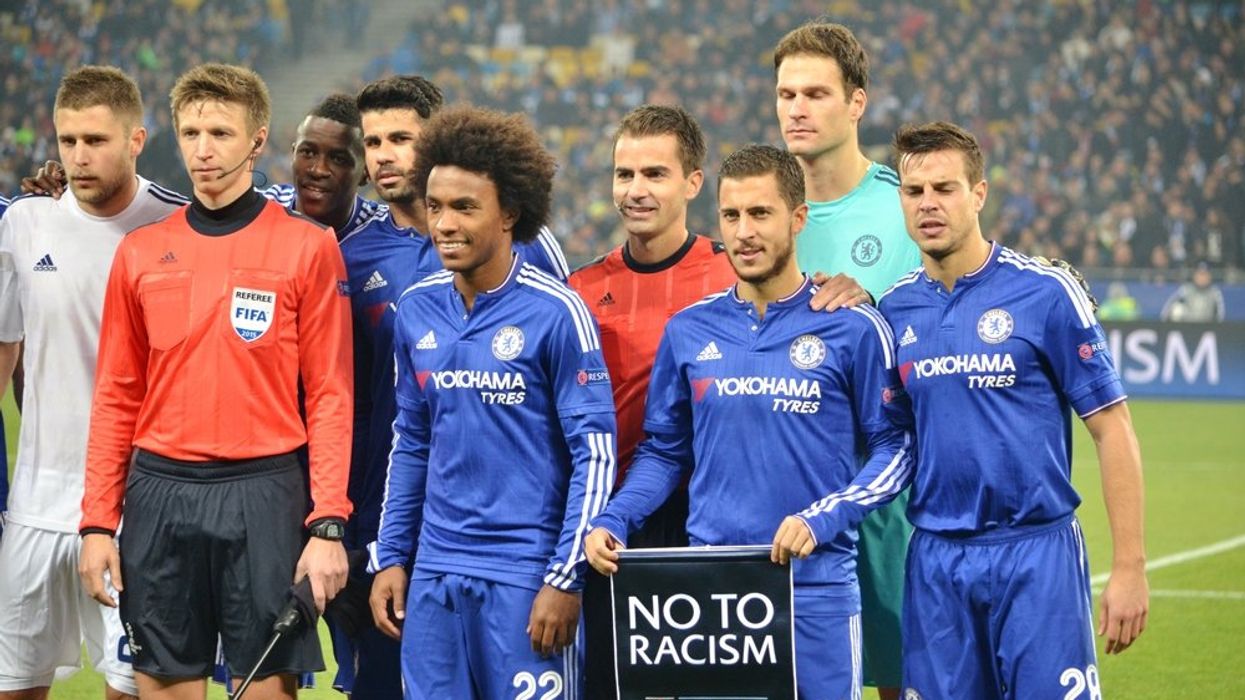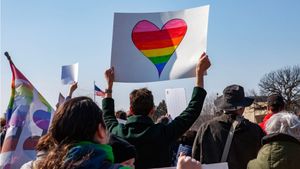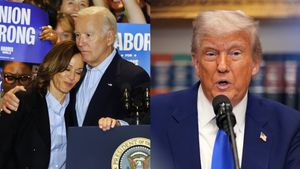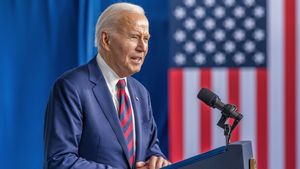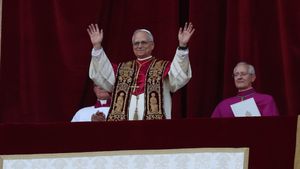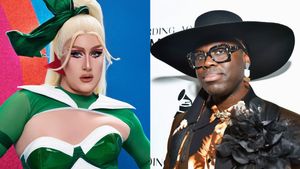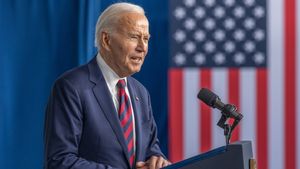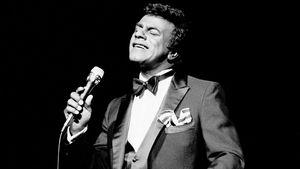Editor's note: Keith Magee is a theologian, political adviser and social justice scholar. He is chair and professor of practice in social justice at Newcastle University (United Kingdom). He is visiting professor in cultural justice at University College London Institute for Innovation and Public Purpose, senior fellow within Cultural Engagement, where he leadsBlack Britain and Beyond, a social platform and think tank, and is also a fellow at its Centre on US Politics. He is the author of “Prophetic Justice: Essays and Reflections on Race, Religion and Politics.” The views expressed in this commentary are his own. Read more opinion on CNN.
(CNN) — My little boy, who is not quite 9, would like to go to a professional football game here in Britain where we live. I have often felt an overwhelming sense of community when sitting in the stands at football tournaments.
But I’m reluctant to take my son along. I can’t help but worry about the attitudes he might encounter there toward people of color like us. That’s because the “beautiful game” we both love has a shameful racism problem.
The problem is in the spotlight yet again following the vile abuse directed at Black Brazilian Vinícius Júnior during a match between his team Real Madrid and Valencia.
The resulting scandal has rocked Spain, which has a history of racists targeting players, but the country is not alone — across Europe football has long been plagued by racism.
In recent years, racist abuse at matches has been getting worse, a phenomenon many see as being intrinsically tied to the rise of nationalism in Europe. Some of the nastiest incidents have occurred in Italy and other countries with a strong far-right presence and where xenophobic discourse has become normalized. In the UK, players have pointed out that comments made by politicians responsible for pushing an increasingly strident anti-immigrant stance have emboldened racists at matches.
It is proving difficult to dislodge racism from British football, despite attempts at structural reform (with mixed results), the introduction of tougher deterrents and the outstanding efforts of anti-racist organizations such as Kick It Out. A 2021 survey found a third of ethnic minority football fans had experienced racism at stadiums, and in England and Wales, race-related hate crimes at matches are on the rise.
Football is, of course, a reflection of society. Like any sport, it can mirror humanity’s ugliest traits, such as hate-driven tribalism, as well its best ones, such as tolerance and compassion.
But the sport is also a uniquely powerful force with a potentially critical role to play in the global fight for racial justice. What happens at matches matters, because racist incidents and their repercussions are witnessed by millions all over the world.
These games offer a window into how other regions, nations or continents deal with difference, and provide a rare opportunity for us to think as an international community about what kind of society we want to live in.
When football reflects the worst of us, as it did in Spain, it elicits condemnation from at least one president as well as from the United Nations. Tournaments and sponsorship deals worth billions of dollars are jeopardized, and — most importantly — children who kick balls around in the local park notice and learn from our responses.
Sadly, it often takes a major scandal to spark outrage and accelerate the pace of change. When fans, sponsors, managers and football authorities are united in indignation, as most are right now, it is imperative that they seize the moment to transform attitudes within the sport and beyond.
Anti-racism slogans, however, are no longer enough. Governing bodies like FIFA and UEFA should stop using racism’s reach outside the sport as an excuse for inadequate responses. Europe’s football authorities must send a clear message that they will not tolerate hate by introducing more stringent sanctions.
Clubs whose fans or players commit hate crimes should have points deducted, impacting their position in their league. For national teams, racist behavior by fans or players should result in a tournament ban. The ultimate goal of ridding the game of racism justifies the means.
In Spain, where racist incidents are largely dealt with by the courts, La Liga is now calling for its own sanctioning powers. I hope it makes full use of them to punish racism swiftly and decisively.
Truly effective anti-racism measures tend to be put in place when individuals who know what discrimination feels like hold positions of influence. While diversity among football players is high, representation off the pitch is shockingly poor at every level.
The example should come from the top, but progress is proving painfully slow. Since 2019, the diversity of UEFA’s Executive Committee has slightly improved (it now has two non-white members rather than just one), but the lack of Black or brown managers is still an issue across Europe. Perhaps the fact that Spain’s La Liga does not currently have a single non-white executive board member or manager or explains why it has failed, until now, to treat racism as a significant problem.
Education is also key. With its vast audiences and long seasons, football is the perfect vehicle via which to champion the extraordinary potential of teamwork. In every walk of life, if we collaborate to achieve racial justice, we can win much more than a mere tournament.
In the UK, inspirational organizations such as Show Racism the Red Card are spreading this message in schools and workplaces. But they should not bear this burden alone — governments must take responsibility for anti-racism education and training and make use of the unique platform football offers.
It will take time and effort to fully dismantle systemic racism, be it in football or in society, but it is possible. As Martin Luther King Jr. said, “ … the arc of the moral universe is long, but it bends toward justice.” We all need to recognize racism when we see it and call it out. As my friend Shaka Hislop, president of Show Racism the Red Card, noted, “This mistreatment of Vinícius Júnior has only gone global because he refused to be silent.”
Every racist incident that occurs in a school hallway, a workplace, or on the street is just as serious as one that is broadcast live from a stadium into millions of homes. We must collectively make it impossible to turn away from inequality.
Black and brown footballers have often described being celebrated when they score, but othered and rejected when they don’t. When Mesut Özil, whose family origins are Turkish, quit the German national team in 2018, he wrote, “I am German when we win, but I am an immigrant when we lose.”
How many people like me, living in majority White nations, have also felt our darker skin color is “acceptable” only when we are perceived to be adding value?
Race will continue to divide us until we learn to see past our differences and cherish each other’s humanity whatever the circumstances. Taking this leap of empathy can be challenging.
For some people, the sight of a brilliant young footballer reduced to tears on the pitch by racist abuse might be what it takes for them to begin to understand the terrible harm such attacks cause.
To anyone, football fan or not, moved by Vinícius Júnior’s frustration and despair, I would say this: If you wouldn’t want one of your loved ones to feel that way, maybe it is time to act. Let’s ensure hate is on the losing side. The children are watching.
The-CNN-Wire
™ & © 2023 Cable News Network, Inc., a Warner Bros. Discovery Company. All rights reserved.
